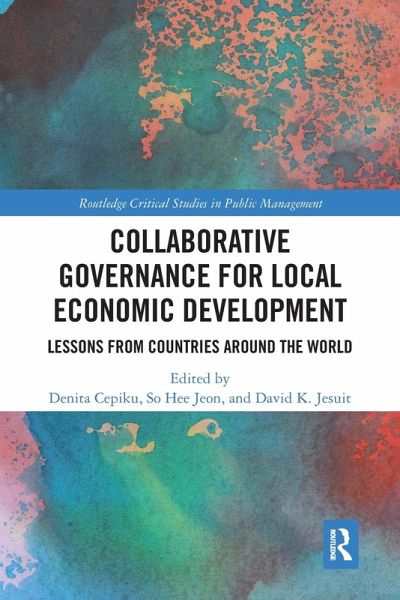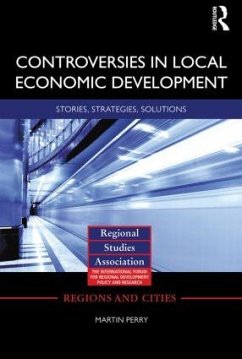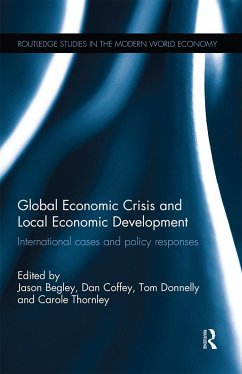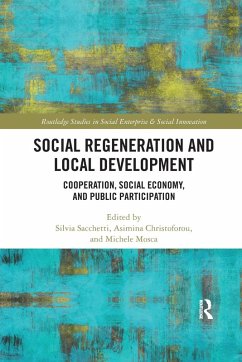
Collaborative Governance for Local Economic Development
Lessons from Countries around the World
Herausgeber: Cepiku, Denita; Jesuit, David K.; Jeon, So Hee
Versandkostenfrei!
Versandfertig in 1-2 Wochen
55,99 €
inkl. MwSt.
Weitere Ausgaben:

PAYBACK Punkte
28 °P sammeln!
Although collaborations for local and regional economic development have been popular in recent years, it is not yet wholly clear when or how such efforts bring successful outcomes. Using an integrative conceptual framework for collaborative governance, this innovative collection provides a systematic and interdisciplinary analysis of real-world collaborative networks for local and regional economic development. Focusing on a wide range collaborative economic development in diverse cities and regions in USA, Canada, Germany, India, Italy, and South Korea, the chapters explore what forces motiv...
Although collaborations for local and regional economic development have been popular in recent years, it is not yet wholly clear when or how such efforts bring successful outcomes. Using an integrative conceptual framework for collaborative governance, this innovative collection provides a systematic and interdisciplinary analysis of real-world collaborative networks for local and regional economic development. Focusing on a wide range collaborative economic development in diverse cities and regions in USA, Canada, Germany, India, Italy, and South Korea, the chapters explore what forces motivate the emergence of collaborative economic development efforts. Each chapter explores the factors which contribute to or hinder collaborative governance efforts for economic development and identifies lessons for overcoming challenges to creating communities that are economically resilient, environmentally sustainable and politically engaged in the era of globalization. By focusing on collaborative governance and its implications for the ability of policies to meet the challenges of the 21st century, it provides lessons for researchers in public management, urban planning/development, public policy, and political science, as well as practitioners interested in promoting local economic development.














